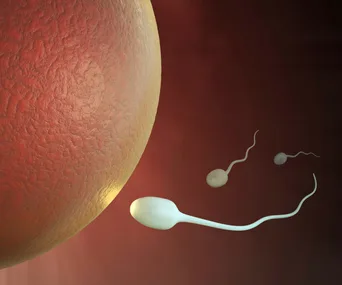Recent decades have seen a trend for women to delay pregnancy in favour of career development and financial security, and there has also been a lot of media attention on declining fertility rates with age.
As a general practitioner, I often speak to patients who are over 30 and starting to look at their options for fertility and pregnancy.
Some have started trying to get pregnant, but find it is taking a lot longer than they expect. Some are single women with no current plans to find a partner, or who have not found a partner who they consider is suitable for co-parenting.
They want to know how they can buy time until the circumstances are right for them to have a baby.
Fertility peaks when a woman is in her early 20s so in purely physiological terms, women are advised to consider their first pregnancy before the age of 32 when the rates of miscarriage, ectopic pregnancy, stillbirth, chronic diseases and infertility are at their lowest.
While this is biologically ideal, it may not be socially ideal or feasible, resulting in a decision by many women to delay their first pregnancy until they are well into their 30s.
The problem is that fertility drops off rapidly at around 35 and drops off sharply in the early 40s. This may seem young, but in fertility terms, it can be “game over” for many women.
One question that comes up frequently is, “How much time do I have left?” The answer is that there is no way of knowing for sure.
A blood test called Anti-Mullerian Hormone (AMH), or ovarian reserve test, aims to estimate a woman’s egg reserve or how much her fertility has declined.
Women are born with their lifetime supply of eggs, which gradually decrease in quality and quantity with age. AMH is a hormone secreted by cells in developing egg follicles. The level of AMH in a woman’s blood is generally a good indicator of her ovarian reserve and the likelihood that she will respond to the hormone stimulation of IVF, but it is not very precise.
An inaccurate test can have serious outcomes. An inaccurate result could make a woman feel pressured to freeze her eggs when she actually has plenty of eggs left, while another woman might think she has plenty of time, but her egg supply may be running out.
So, what are the options for women who are aware of their declining fertility, but are not ready to raise a child?
Sperm donors
One possibility for single women or women in a same-sex relationship is to recruit a close friend to provide sperm as a sperm donor, or for him to be a sperm donor as well as a co-parent for the child.
Other women choose to use sperm from an anonymous donor. If they are not ready to be a parent right now, there is the option of having an IVF procedure to collect eggs, having them fertilised in vitro and then freezing the resulting embryos for pregnancy down the track when the time is right.
Freezing eggs
More recently, we have seen the development of egg freezing technology and I am being asked about this all the time.
Many women are seeing this as an insurance policy, to “buy time” until they are ready for parenthood. The idea is to have their eggs harvested and bank them for later, to remove the time pressure of finding the right partner or the “right time” for a baby before it’s too late for aging ovaries.
Yet is this the solution it seems to be? Freezing technology for sperm and for fertilised embryos has been around for decades.
Egg freezing is relatively new and less successful at producing a baby than a frozen embryo. Frozen eggs need to be warmed and then fertilised with sperm to produce an embryo.
United States data show that a 30-year-old who freezes 24 eggs has less than a 40 per cent chance of having a live baby, so there are certainly no guarantees.
The procedure is also expensive. Clinic charges vary, but an egg freezing cycle is about $10,000 with a day surgery fee of around $1000 and storage of $500 per year. This is not covered by Medicare unless the woman has a medically diagnosed infertility problem.
Much of life is unpredictable, but my advice to young women is to think carefully about whether you want to be a mother.
Consider your career and plans for your life path, and remember that your fertility is very time sensitive. Explore your options sooner rather than later.
This story originally appeared in the April 2016 issue of The Australian Women’s Weekly.



